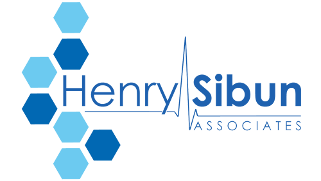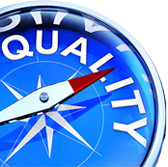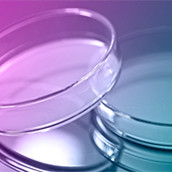



Henry Sibun Associates Ltd (HSA) is a consultancy service for the medical device and pharmaceutical industries.
We offer friendly, practical support to organisations to help them achieve their quality and regulatory goals. Pragmatic solutions go beyond basic compliance to add value, whether it is for implementation of a quality management system to ISO13485/ISO9001, full compliance to one of the medical devices directives, or just helping to solve a problem.
HSA will tailor services to your needs, so whether you are just starting out or experienced, HSA will provide the right level of support. See the "Services" tab for full details of support in the following areas:
What do you know about the changes to the biological safety requirements under the Medical Devices Regulation? Join me to find out about all of the changes and much more at two conferences specifically covering the biocompatibility of medical devices. For more details, see:
- 01-02 October 2019: Symbioteq "Biocompatibility of Medical Devices Conference 2019" at the Elite Park Avenue Hotel, Gothenburg, Sweden - http://www.key2compliance.com/cs5247-biocompatibility-medical-devices-2019.php
- 19-20 November 2019: KNect365 "Biocompatibility for Medical Devices" at the CCIB, Barcelona Spain - https://lifesciences.knect365.com/biocompatibility/agenda/3
On 13th March 2019 the European Council published corrigenda for the Medical Devices Regulation and IVD Medical Devices Regulation. These are slim documents but do at least clarify and correct some points. E.g. under Annex IX of the MDR there was no requirement for Notified Bodies to assess the whole Technical Documentation for class IIa devices (just the clinical aspects) which could have been a major reduction for this class of devices. The MDR Corrigendum corrects this so there is now no escape! The full Technical Documentation for class IIa devices will be audited.
Links to download corrigenda for the MDR and IVDR respectively: https://data.consilium.europa.eu/doc/document/ST-15409-2018-REV-1/en/pdf
https://data.consilium.europa.eu/doc/document/ST-15418-2018-REV-1/en/pdf
Emergo has published a clear summary of the outcome for medical devices companies should a “no deal” Brexit occur. This would have a devastating impact on the UK medical devices industry and potentially on EU patients. EC certificates from UK Notified Bodies would become void at midnight on 29 March 2019.
“If a product has been sold, the location of the new owner will determine whether the product has been placed on the EU market. For example, if a UK-based manufacturer sells a product to an EU-based distributor before Brexit day, the device will considered to be placed on the EU market – even if the product is delivered after that date”.
However, that product must have been manufactured (and released) prior to the Brexit date. See Emergo website for more details.
https://www.emergobyul.com/blog/2019/02/european-commission-requirements-marketing-medical-devices-no-deal-brexit-scenario?utm_source=RADAR&utm_medium=Email&utm_campaign=Email-RADAR
The long awaited Regulations on Medical Devices (EU 2017/745) and on in-vitro Diagnostic Medical Devices (EU 2017/746) were published today (05/05/2017) in the Official Journal of the European Union. See following link for a copy of both:
http://eur-lex.europa.eu/legal-content/EN/TXT/?uri=OJ:L:2017:117:TOC
The European Parliament voted to accept the proposed Regulations for Medical Devices (MDR) and for In-vitro Diagnostic Medical Devices (IVDR) on Wednesday 05/04/2017. These are due to be published in the Official Journal of the European Union next month, and will come into force in May 2020 for the MDR and May 2022 for the IVDR. The press release from the European Commission can be viewed at: http://europa.eu/rapid/press-release_IP-17-847_en.htm
The final texts of the Regulations for Medical Devices and In-vitro Diagnostic Medical Devices were published on Wednesday 22nd February 2017. These weigh in at a hefty 566 pages for the MDR and 477 pages for the IVDR (compared to 60 and 42 pages respectively for the Directives they replace). They still need the European Council to vote on them (due 7th March) and then the European Parliament to vote (in April). If passed, the Regulations could be formally published by May 2017, and enter into force in either May or June. Given that timetable, the new rules established under the MDR and IVDR would apply in 2020 and 2022 respectively. Copies are available at:
MDR: http://data.consilium.europa.eu/doc/document/ST-10728-2016-INIT/en/pdf
IVDR: http://data.consilium.europa.eu/doc/document/ST-10729-2016-INIT/en/pdf
The long awaited 2015 re-write of ISO 9001 (Quality Management System requirements) has been published (along with a new version of ISO 9000 which covers vocabulary and fundamentals of a QMS). ISO 9001 has been completely restructured which is likely to be a challenge for medical devices manufacturers who will still need to meet ISO 13485. ISO 13485 will also be reissued (probably early 2016) but won’t follow the new structure and requirements of ISO 9001:2015.
According to BSi the major changes include:
· Increased emphasis on building a management system aligned to an organization's goals and objectives
· More active leadership participation required
· Greater focus on risk based thinking throughout
· Less prescriptive requirements for documentation
· Alignment with other key management system standards
The standard can be purchased from BSI here: http://www.bsigroup.com/en-GB/about-bsi/media-centre/press-releases/2015/september/ISO-90012015-Quality-Management-Systems-Standard-publishes-today-/#.VgWZxHmFP4g
Join us in Gothenburg, Sweden on the 13-14 October 2015 to hear the latest updates and requirements for biocompatibility of medical devices. Hear from an expert panel of speakers including four members of the ISO 10993 Biological Evaluation Technical Committee (TC 194), experienced industry specialists, test laboratories, academia and regulatory bodies. Henry Sibun will be chairing and providing feedback from the perspective of a Notified Body reviewer.
This conference will give you the opportunity to understand the current and future expectations for ensuring the biological safety of medical devices. For further details on the agenda, speakers and registration, please follow this link: http://symbioteq.com/conferences/
Welcome to our new website, with an updated look and more information on some of our latest clients. We hope you find the information you are looking for, but if it's not available please don't hesitate to get in touch.
The 9th Annual Informa Conference on Clinical Evaluations and Investigations for Medical Devices took place in Dublin on 22-23 April 2015. Henry chaired the first day of the conference and later spoke about “Building clinical evaluation and post market surveillance into the Quality Management System”. For further details, see http://www.informa-ls.com/event/clinicalstudies
Revised versions of both ISO 13485 and ISO 9001 are due for publication later this year (or early in 2016).
A completely revised version of ISO 9001 (the leading quality management standard for all types of business) is expected to be published around September this year. This is a major change, not only to the content but also to the structure of the standard (with the latter based on “Annex SL” – an ISO/IEC directive supplement that defines the common high level structure for all new ISO standards). It is based around the three core concepts of the process approach, the plan-do-check-act cycle and risk management (something we are used to in the medical device world).
ISO 13485 is under revision with publication of the new standard likely to be early in 2016. This is not a major change with respect to the structure and content (unlike ISO 9001:2015) and mainly clarifies what has always been expected but not explicitly stated (e.g. confidential health information is covered by the requirements on “customer property”). There are some new definitions (e.g. Authorised Representative, Distributor, Clinical Evaluation, etc.) and several areas are beefed up (e.g. risk management is no longer just considered in product realisation). I will post more detail on the proposed changes later this year.
Are you ready for the Tyvek® Transition? DuPont are changing the manufacturing process of Tyvek® that is used as packaging for many sterile medical devices. This is considered a significant change by Notified Bodies and manufacturers of medical devices are expected to review this as part of their change control and risk management processes in accordance with sterilisation standards. If you need help assessing the change HSA Ltd can advise you.
If your product range includes Class III or Active Implantable medical devices then a formal change note is required to be submitted to your Notified Body for approval prior to using the new Tyvek® material. For further details, see Dupont’s Tyvek® Medical Packaging Transition website: http://www.dupont.com/products-and-services/packaging-materials-solutions/pharmaceutical-packaging/brands/tyvek-sterile-packaging/articles/transition-project-data-documents.html/
Unannounced audits (UAA) – following the Commission Recommendation 2013/473/EU the main Notified Bodies have started to conduct Unannounced Audits on both medical device manufacturers and their crucial suppliers. HSA Ltd can help you prepare for these by conducting mock UAAs, writing procedures for handling UAAs and reviewing contracts with crucial suppliers. Don’t get caught out – if your suppliers do not allow the Notified Body access for an UAA you will still be charged the full price as well as potentially having your EC certificates suspended.

Regulatory compliance can be a challenge with complex requirements constantly evolving in different markets.
Read more
Quality Management Systems are the foundation of all good businesses, whether certified or not.
Read more
Making the best use of your key assets - your employees - is vital for a successful business.
Read more
Sterilisation is a "special process" requiring careful validation and control to ensure the safety of devices.
Read more